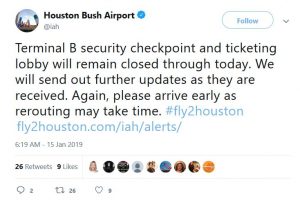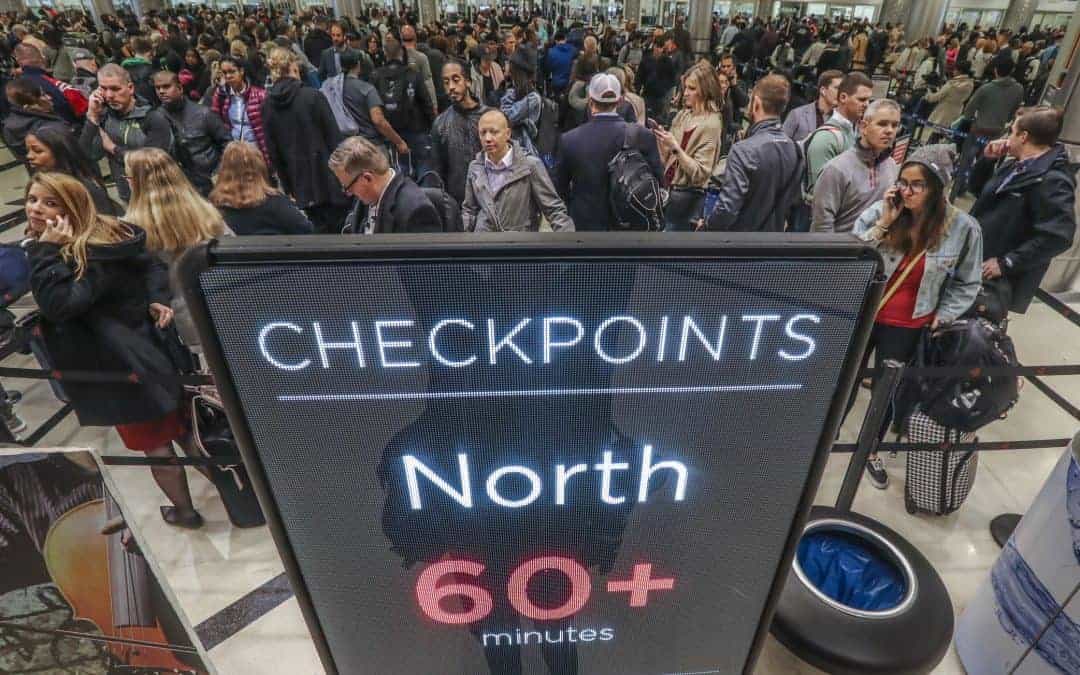As the government shutdown continues to affect federal TSA workers, how should airports respond to the press?
The sick-out from TSA employees who aren’t being paid is another issue in which the airport has no control but is still the focus of the reporting. The media always wants to localize a national story, and what began as providing “operations are normal” statements has changed for many airports as the shutdown has dragged on. The TSA at George Bush Intercontinental Airport in Houston (IAH) had to close a checkpoint on Monday in order to consolidate security staff, and on Tuesday closed the adjacent ticketing lobby entirely, rerouting guests to other terminals for processing. Other airports are seeing longer lines, fewer open lanes, and delays getting screened bags onboard aircraft. While the airport can’t manage the security process, the shutdown is impacting its passengers and their experience through the airport. Airports must communicate about the impact without taking responsibility, assigning blame, or offering political solutions.
For example, IAH posted about the impacts on their social media accounts:

On both Twitter and Facebook, the airport shares: “Terminal B security checkpoint and ticketing lobby will remain closed through today. We will send out further updates as they are received. Again, please arrive early as rerouting may take time.” The link directs you to the airport’s website, where a more detailed version of the alert is located. It’s an excellent use of the airport using its owned media to manage its messaging.
Emulating IAH is a great plan for airports dealing with the same issue. In fact, the situation is a good reminder for all airport PIOs to, as the NTSB says, “stay in your lane” and not share information that isn’t the direct responsibility of the airport. “I had a reporter ask me how many TSA agents are calling in sick,” said Erin Burns with New Orleans International Airport (MSY). “I can’t answer that. They don’t call in sick to me!” Reporters often know an airport spokesperson better than a federal agency spokesperson, so it’s no surprise when they try to press you for more information. Stay strong.
Here are 4 tips for what airport spokespeople should and shouldn’t say during the shutdown:
- Stay in your lane. Don’t speak for the TSA, FAA, or CBP.
- However, does your airport contract out air traffic control duties, or security screening? You can say that! Explain how you are or are not being affected, just don’t talk about staffing levels, policies, or issues for the other agencies.
- Report on operations, such as whether you’ve closed a checkpoint or are experiencing longer than usual wait times.
- Encourage travelers to arrive early in case there are security delays.
- Refer reporters to the relevant federal agency for more information.
If you’d like help crafting a response specific to your airport, feel free to contact us.

